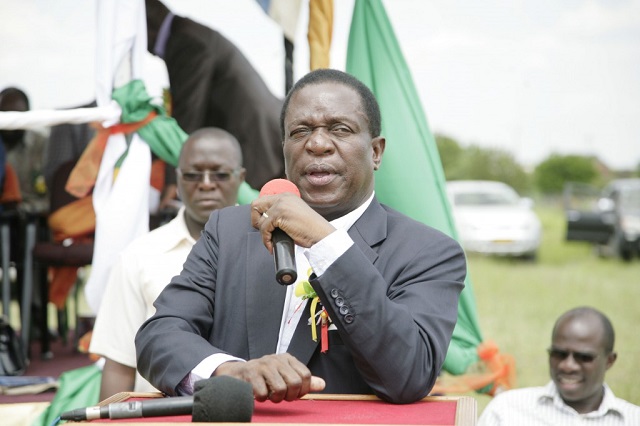
Harare, Zimbabwe | AFP | Emmerson Mnangagwa, who was removed by Zimbabwe’s leader Robert Mugabe as vice president on Monday after a bitter tussle with the first lady over succession, had waited almost four decades for his chance at the top job.
Nicknamed “Ngwena” (The Crocodile) because of his fearsome power and ruthlessness against rivals, the 75-year-old had a reputation for taking no prisoners.
But he was ultimately outfoxed by Grace Mugabe, who is 41 years younger than her husband, after she apparently convinced the veteran head of state to ditch his long-serving minister.
An acrimonious weekend in which Mugabe’s wife was openly booed at a rally prompting the president to blame Mnangagwa, who was present, probably sealed the fate of the outgoing number two. It was the climax of long-running tensions between the first lady and Mnangagwa.
Analysts have suggested that Mnangagwa’s sacking would effectively disqualify him from the race to eventually replace Mugabe, now aged 93.
In the early days after independence from Britain in 1980, Mugabe made the young lawyer his minister for national security.
Since then Mnangagwa has occupied a host of cabinet positions but relations between him and his political mentor have not always been cosy and the younger man is no stranger to presidential purges.
In 2004 he lost his post as the secretary for administration in the ruling ZANU-PF party after being accused of openly angling for the post of vice president.
Four years in the political wilderness followed, during which his then rival Joice Mujuru became vice president and the favourite to succeed Mugabe.
She was ultimately deposed following a campaign orchestrated by Grace Mugabe who convinced the president she was not to be trusted.
– Political comeback –
The 2008 elections, when he was made Mugabe’s chief election agent, changed Mnangagwa’s fortunes.
Mugabe lost the first round, but his supporters were not going to make the same mistake in the second round, which was marred by violence, intimidation and allegations of vote rigging.
In the same year Mnangagwa took over as head of the Joint Operations Command, a committee of security chiefs, which has been accused by rights groups of organising violent campaigns to crush dissent.
He was targeted by EU and US sanctions imposed on Mugabe and his close allies over the elections and violence, but promptly given control of the powerful defence ministry.
It was a return to the home that made him a force in Zimbabwean politics in the first place.
 The Independent Uganda: You get the Truth we Pay the Price
The Independent Uganda: You get the Truth we Pay the Price





